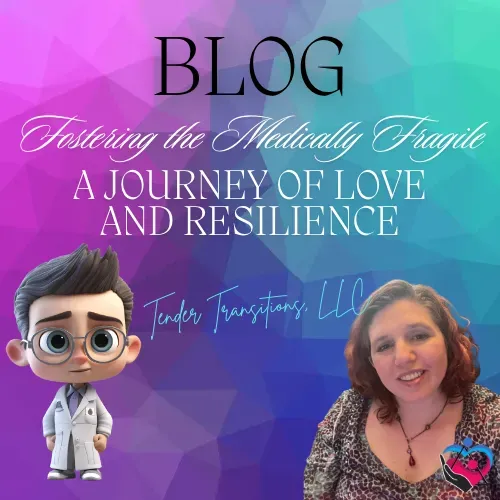Weighed in the Balance: Pros & Cons of Medically Fragile Foster Care
Fostering a child is a profoundly impactful commitment, and when it comes to caring for medically fragile children—those with complex medical conditions requiring ongoing care—the decision to become a foster parent involves weighing a unique set of pros and cons. Understanding these factors is crucial for anyone considering this path, as it helps in making an informed decision about whether this challenging yet rewarding role is right for you. This blog post explores the advantages and disadvantages of medically fragile foster care, providing a balanced perspective on what to expect.
The Pros of Medically Fragile Foster Care
1. Making a Significant Difference
One of the most compelling reasons to become a foster parent for medically fragile children is the opportunity to make a profound impact on a child’s life. By providing a stable, loving, and supportive environment, you offer a sense of security and comfort to a child who may have experienced significant trauma or instability. Your care can significantly improve their quality of life and overall well-being.
2. Building Strong Bonds
Caring for a medically fragile child often involves close, one-on-one attention, which can lead to deep and meaningful bonds. The nurturing environment you provide can help build trust and attachment, creating a strong, lasting relationship with the child. These connections can be incredibly fulfilling and rewarding for both the child and the foster parent.
3. Personal Growth and Fulfillment
The challenges associated with caring for a medically fragile child can lead to significant personal growth. Foster parents often develop new skills, such as advanced medical care techniques, problem-solving, and advocacy. The experience of overcoming these challenges can be profoundly fulfilling, offering a sense of accomplishment and purpose.
4. Support and Resources
Medically fragile foster parents often have access to specialized support and resources. This includes training on managing medical needs, access to healthcare professionals, and support from foster care agencies. Additionally, support groups and respite care services are available to help manage the demands of caregiving and provide a network of understanding and encouragement.
5. Contributing to Positive Change
By providing care for medically fragile children, you contribute to positive change in the foster care system. Your willingness to take on the unique challenges of this role can help address the needs of children who may otherwise struggle to find appropriate placements. Your efforts support the overall goal of improving the lives of children in the foster care system.
The Cons of Medically Fragile Foster Care
1. Increased Care Demands
Caring for a medically fragile child involves significantly more medical care and attention compared to other foster placements. This includes managing complex medical treatments, administering medications, and using specialized medical equipment. The demands of this role can be overwhelming, especially for those who are new to medical caregiving.
2. Emotional and Physical Stress
The stress associated with caring for a medically fragile child can be substantial. The emotional toll of managing a child’s health needs, coupled with the potential for medical emergencies, can lead to burnout and exhaustion. Foster parents need to be prepared for the emotional highs and lows that come with this role and have strategies in place to manage stress.
3. Complex Coordination
Managing a medically fragile child’s care requires coordination with multiple healthcare providers, including doctors, therapists, and specialists. This can involve navigating complex medical systems, dealing with insurance issues, and keeping track of numerous appointments. The complexity of these tasks can be daunting and time-consuming.
4. Impact on Family Dynamics
Adding a medically fragile child to your family can impact family dynamics. Existing family members may need to adjust to the new caregiving responsibilities, and the demands of medical care may limit time spent on other activities. It’s important to consider how fostering a medically fragile child will affect your family and to ensure that all members are prepared for the changes.
5. Financial Considerations
While foster care provides financial support for basic needs, the costs associated with caring for a medically fragile child can be significant. This includes expenses for medical supplies, treatments, and potential modifications to the home. It’s important to assess your financial situation and understand how these costs will be managed.
Finding Balance
Weighing the pros and cons of medically fragile foster care involves a careful assessment of your readiness, resources, and support systems. Here are some steps to help you find balance:
Self-Assessment:
Reflect on your ability to handle the demands of caring for a medically fragile child, including your emotional resilience, medical knowledge, and organizational skills.
Family Readiness:
Ensure that your family is prepared for the changes and challenges that come with fostering a medically fragile child. Open communication and support from all family members are essential.
Support Systems:
Leverage the support and resources available to you, including training, professional guidance, and support groups. Building a strong network can help you manage the challenges of caregiving.
Financial Planning:
Assess the financial implications of caring for a medically fragile child and plan accordingly. Explore available resources and financial support to help manage any additional costs.
Conclusion
Fostering a medically fragile child is a deeply rewarding but challenging role. Understanding the pros and cons of this commitment is crucial for making an informed decision. By carefully considering the demands and rewards of medically fragile foster care, you can determine whether this path is right for you and ensure that you are prepared to provide the care and support that these children need. Ultimately, the decision to become a medically fragile foster parent involves balancing the potential for profound impact and personal growth with the realities of increased care demands and emotional stress.

